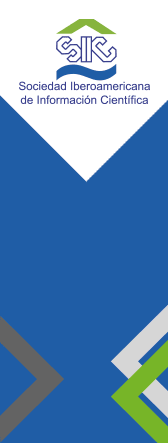ANALIZAN LA UTILIDAD DE LA QUIMIOTERAPIA DEL CANCER PULMONAR DE CELULAS NO PEQUEÑAS AVANZADO EN ANCIANOS(especial para SIIC © Derechos reservados) |
| La mejor tolerabilidad potencial de las llamadas terapias dirigidas las convierte en una alternativa atractiva para este subgrupo de pacientes. |
|
Autor: Antonio Rossi Columnista Experto de SIIC Institución: "S.G. Moscati" Hospital Artículos publicados por Antonio Rossi |
|
Recepción del artículo 4 de Mayo, 2008 |
Aprobación 8 de Julio, 2008 |
|
Primera edición 6 de Marzo, 2009 |
Segunda edición, ampliada y corregida 7 de Junio, 2021 |
![]() Resumen
Resumen
El cáncer de pulmón de células no pequeñas (CPCNP) es la principal causa de muerte asociada con el cáncer en el mundo y puede considerarse como característico de la ancianidad. La quimioterapia es el pilar principal del tratamiento, debido a que muchos pacientes se encuentran en un estadio avanzado de la enfermedad al momento del diagnóstico. En comparación con los más jóvenes, los pacientes ancianos toleran mal la quimioterapia a causa de la progresiva reducción de las funciones orgánicas y las enfermedades asociadas con la edad. Esto hace que los pacientes añosos frecuentemente no sean considerados elegibles para una quimioterapia agresiva basada en platino, el cual es el tratamiento estándar del CPCNP avanzado. A la fecha, en la práctica clínica, la quimioterapia con un solo agente, una droga de tercera generación, debe ser la opción recomendada para pacientes mayores no seleccionados con CPCNP avanzado. Sin embargo, la viabilidad de la quimioterapia basada en platino sigue siendo una cuestión no resuelta que debe probarse en estudios aleatorizados. Se debería dar una alta prioridad a la evaluación del papel que ocupan las llamadas terapias dirigidas mediante nuevas moléculas. Varios nuevos agentes biológicos se encuentran en diferentes etapas de investigación clínica en CPCNP avanzado y algunos de ellos han mostrado mejorías en varios parámetros. Su mejor tolerabilidad potencial los convierte en una alternativa atractiva para este subgrupo de pacientes. Incluso resulta obligatoria una evaluación geriátrica completa para la elección de un tratamiento individualizado del CPCNP en ancianos.
![]() Palabras clave
Palabras clave
CPCNP, pacientes ancianos, quimioterapia, terapias con blanco molecular
Artículo completo
(castellano)
Extensión: +/-9.84 páginas impresas en papel A4
Exclusivo para suscriptores/assinantes
 Abstract
Abstract
Non-small cell lung cancer (NSCLC) is the leading cause of related cancer mortality worldwide and it may be considered typical of advanced age. Since most patients with NSCLC have advanced disease at diagnosis, chemotherapy is the mainstay of treatment. Elderly patients tolerate chemotherapy poorly compared to their younger counterpart because of their progressive reduction of organ function and comorbidities related to age. This is why these patients are often not considered eligible for aggressive platinum-based chemotherapy, the standard of care for advanced NSCLC. To date, in clinical practice, single-agent chemotherapy with a third-generation drug should be the recommended option for non-selected elderly patients with advanced NSCLC. However, feasibility of platinum-based chemotherapy remains an open issue and has to be proven in prospective randomized trials. High priority should be also given to the evaluation of the role of new molecular targeted therapies. Several novel biologic agents are at various stages of clinical development in advanced NSCLC with some of them reporting improvements in several outcomes. Their potential better tolerability renders them attractive alternatives in the treatment of this subgroup of patients. Moreover, a comprehensive geriatric assessment for individualized treatment choice in NSCLC elderly patients is mandatory.
 Key words
Key words
NSCLC, elderly patients, chemotherapy, targeted therapies
Clasificación en siicsalud
Artículos originales > Expertos del Mundo >
página www.siicsalud.com/des/expertocompleto.php/
Especialidades
Principal: Oncología
Relacionadas: Anatomía Patológica, Bioquímica, Cirugía, Epidemiología, Farmacología, Geriatría, Medicina Interna, Neumonología
Antonio Rossi, "S.G. Moscati" Hospital Division of Medical Oncology, 83100, Contrada Amoretta, Avellino, Italia
1. Jemal A, Siegel R, Ward E, et al. Cancer Statistics, 2008. CA Cancer J Clin 58:71-96, 2008.
2. Pfister DG, Johnson DH, Azzoli CG, et al. American Society of Clinical Oncology treatment of unresectable non-small-cell lung cancer guideline: update 2003. J Clin Oncol 22:330-353, 2004.
3. Fentiman IS, Tirelli V, Monfardini S, et al. Cancer in the elderly: why so badly treated? Lancet 28:1020-1022, 1990.
4. Balducci L. Geriatric oncology: challenges for the new century. Eur J Cancer 36:1741-1754, 2000.
5. Yancik R, Ganz PA, Varricchio CG, Conley B. Perspectives on comorbidity and cancer in older patients: approaches to expand the knowledge base. J Clin Oncol 19:1147-1151, 2001.
6. Janssen-Heijnen MLG, Schipper RM, Razenberg PPA, Crommelin MA, Coeberg JW. Prevalence of co-morbidity in lung cancer patients and its relationship with treatment: a population-based study. Lung Cancer 21, 105-113, 1998.
7. Ershler WB, Long DL. Aging and cancer: issues of basic and clinical science. J Natl Cancer Inst 89:1489-1497, 1997.
8. Turner N, Scarpace PJ, Lowental DT. Geriatric pharmacology: basic and clinical considerations. Ann Rev Pharmacol Toxicol 32:271-302, 1992.
9. Mayersohn M. Pharmacokinetics in the elderly. Environ Health Perspect 102(Suppl.11):119-124, 1994.
10. Litchman SM, Villani G. Chemotherapy in the elderly: pharmacologic considerations. Cancer Control 7:548-556, 2000.
11. Repetto L, Fratino L, Audisio RA, et al. Comprehensive geriatric assessment adds information to Eastern Cooperative Oncology Group performance status in elderly cancer patients: An Italian Group for Geriatric Oncology Study. J Clin Oncol 20:494-502, 2002.
12. Fried LP, Tangen CM, Walston J, et al. Frailty in older adults: evidence for a phenotype. J Gerontol A Biol Sci Med Sci 56:M146-M156, 2001.
13. Saliba D, Elliott M, Rubenstein LZ, et al. The Vulnerable Elders Survey: a tool for identifying vulnerable older people in the community. J Am Geriatr Soc 49:1691-1699, 2001.
14. Maione P, Perrone F, Gallo C, et al. Pretreatment quality of life and functional status assessment significantly predict survival of elderly patients with advanced non-small-cell lung cancer receiving chemotherapy: a prognostic analysis of the Multicenter Italian Lung cancer in the Elderly Study. J Clin Oncol 23:6865-6872, 2005.
15. Elderly Lung Cancer Vinorelbine Italian Study Group. Effects of vinorelbine on quality of life and survival of elderly patients with advanced non-small-cell lung cancer. J Natl Cancer Inst 91:66-72, 1999.
16. Rossi A, Maione P, Colantuoni G, et al. The role of chemotherapy in the treatment of advanced non-small cell lung cancer elderly patients. Cancer Ther 5:77-78, 2007.
17. Frasci G, Lorusso V, Panza N, et al. Gemcitabine plus vinorelbine versus vinorelbine alone in elderly patients with advanced non-small cell lung cancer. J Clin Oncol 18:2529-2536, 2000.
18. Gridelli C, Perrone F, Gallo C, et al. Chemotherapy for elderly patients with advanced non-small-cell lung cancer: the Multicenter Italian Lung Cancer in the Elderly Study (MILES) Phase III randomized trial. J Natl Cancer Inst 95:362-372, 2003.
19. Kudoh S, Takeda K, Nakagawa K, et al. Phase III study of docetaxel compared with vinorelbine in elderly patients with advanced non-small-cell lung cancer: results of the West Japan Thoracic Oncology Group trial (WJOG 9904). J Clin Oncol 24:3657-3663, 2006.
20. Gridelli C, Maione P, Rossi A. Single-agent chemotherapy for the treatment of elderly patients with advanced non-small-cell lung cancer: What is the best drug? J Clin Oncol 25:1444-1445, 2007.
21. Rossi A, Maione P, Gridelli C. Safety profile of platinum-based chemotherapy in the treatment of advanced non-small cell lung cancer in elderly patients. Expert Opin Drug Saf 4:1051-1067, 2005.
22. Perrone F, Gallo C, Gridelli C. Cisplatin-based therapy for elderly patients with advanced non-small-cell lung cancer: Implications of Eastern Cooperative Oncology Group 5592, a randomized trial. J Natl Cancer Inst 94:1029-1030, 2002.
23. Gridelli C, Maione P, Illiano A, et al. Cisplatin plus gemcitabine or vinorelbine for elderly patients with advanced non-small-cell lung cancer: the MILES-2p studies. J Clin Oncol 25:4663-4669, 2007.
24. Biesma B, Wymenga MN, Vincent AD, et al. A randomized phase III study of carboplatin-gemcitabine (CG) versus carboplatin-paclitaxel (CP) in elderly patients (pts) with advanced non-small cell lung cancer (NSCLC) with emphasis on geriatric assessment and quality of life (QoL): The NVALT-3 study. J Thor Oncol 2(Suppl.4):S667-S668 (abstr P2-239), 2007.
25. Scagliotti G, Rossi A, Novello S, et al. Gefitinib (ZD1839) combined with gemcitabine or vinorelbine as single-agent in elderly patients with advanced non-small cell lung cancer (NSCLC). J Clin Oncol 22(14S):636s (abstr 7081), 2004.
26. Jackman D, Yeap YB, Lindeman IN, et al, Phase II clinical trial of chemotherapy naïve patients = 70 years of age treated with erlotinib for advanced non-small-cell lung cancer. J Clin Oncol 25:760-766, 2007.
27. Crinò L, Zatloukal P, Reck M, et al. Gefitinib (IRESSA) verus viorelbine in chemo-naive elderly patients with advanced non small cell lung cancer (INVITE): a randomized phase II study. J Thor Oncol 2:S341 (abstr. B3-04), 2007.
28. Ramalingam SS, Dahlberg SE, Langer CJ, et al. Outcomes for elderly, advanced-stage non small-cell lung cancer patients treated with bevacizumab in combination with carboplatin and paclitaxel: analysis of Eastern Cooperative Oncology Group Trial 4599. J Clin Oncol 26:60-65, 2008.
(exclusivo a suscriptores)
(exclusivo a suscriptores)
Autor
Expertos del Mundo
Especialidad principal:
Oncología
Relacionadas:
Anatomía Patológica
Bioquímica
Cirugía
Epidemiología
Farmacología
Geriatría
Medicina Interna
Neumonología
Extensión: ± 9.84 páginas impresas en papel A4


































